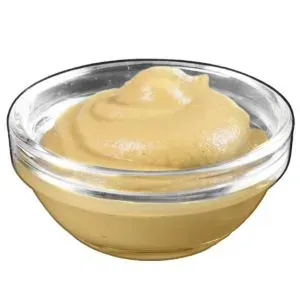Honey Nutrition, Price & Calories 2024

Honey
Honey, often dubbed as liquid gold, is a sweet, natural substance produced by bees using the nectar from flowers. Beyond its delightful taste, honey holds a revered place in various cultures and diets due to its nutritional benefits and medicinal properties. Whether drizzled over breakfast cereals, added to tea, or used as a natural sweetener in recipes, honey is a versatile and healthful addition to our diet.
Nutritional Report
| Nutrients | Per Portion | Percentage Daily Value |
| Sodium (Na) | 0mg | 0% |
| Dietary Fiber | 0g | 0% |
| Added Sugars | 11g | 22% |
| Total Sugars | 11g | Nil |
| Potassium (K) | 5mg | 0% |
| Calcium (Ca) | 0mg | 0% |
| Trans Saturated Fats | 0g | Nil |
| Saturated Fats | 0g | 0% |
| Iron (Fe) | 0mg | 0% |
| Cholesterol | 0mg | 0% |
| Vitamin D | 0mcg | 0% |
Review
Honey is a thick, golden liquid produced by bees. The process begins when bees collect nectar from flowers. This nectar is then broken down into simple sugars stored inside the honeycomb. The design of the honeycomb and the constant fanning by the bees’ wings cause evaporation, creating the thick, syrupy substance known as honey.
Health Benefits of Honey
Honey is renowned for its myriad health benefits:
Antioxidant Properties
Honey is rich in antioxidants, which help protect your body from cell damage due to free radicals. These antioxidants include flavonoids and phenolic acids.
Anti-inflammatory Effects
Regular consumption of honey can help reduce inflammation in the body. Its anti-inflammatory properties are beneficial for conditions like sore throats and digestive issues. Click here this menu: Baked Apple Pie Price & Calorie.
Antibacterial Qualities
Honey, especially Manuka honey, has strong antibacterial properties. It can inhibit the growth of harmful bacteria and promote healing, making it effective for treating wounds and burns.
Frequently Asked Questions
Conclusion
Honey is a nutrient-rich, versatile sweetener with numerous health benefits. Its antioxidant, anti-inflammatory, and antibacterial properties make it a valuable addition to any diet. Whether used in cooking, baking, or as a natural remedy, honey offers both culinary and health advantages. Remember to choose high-quality honey and consume it in moderation to reap the maximum benefits.






